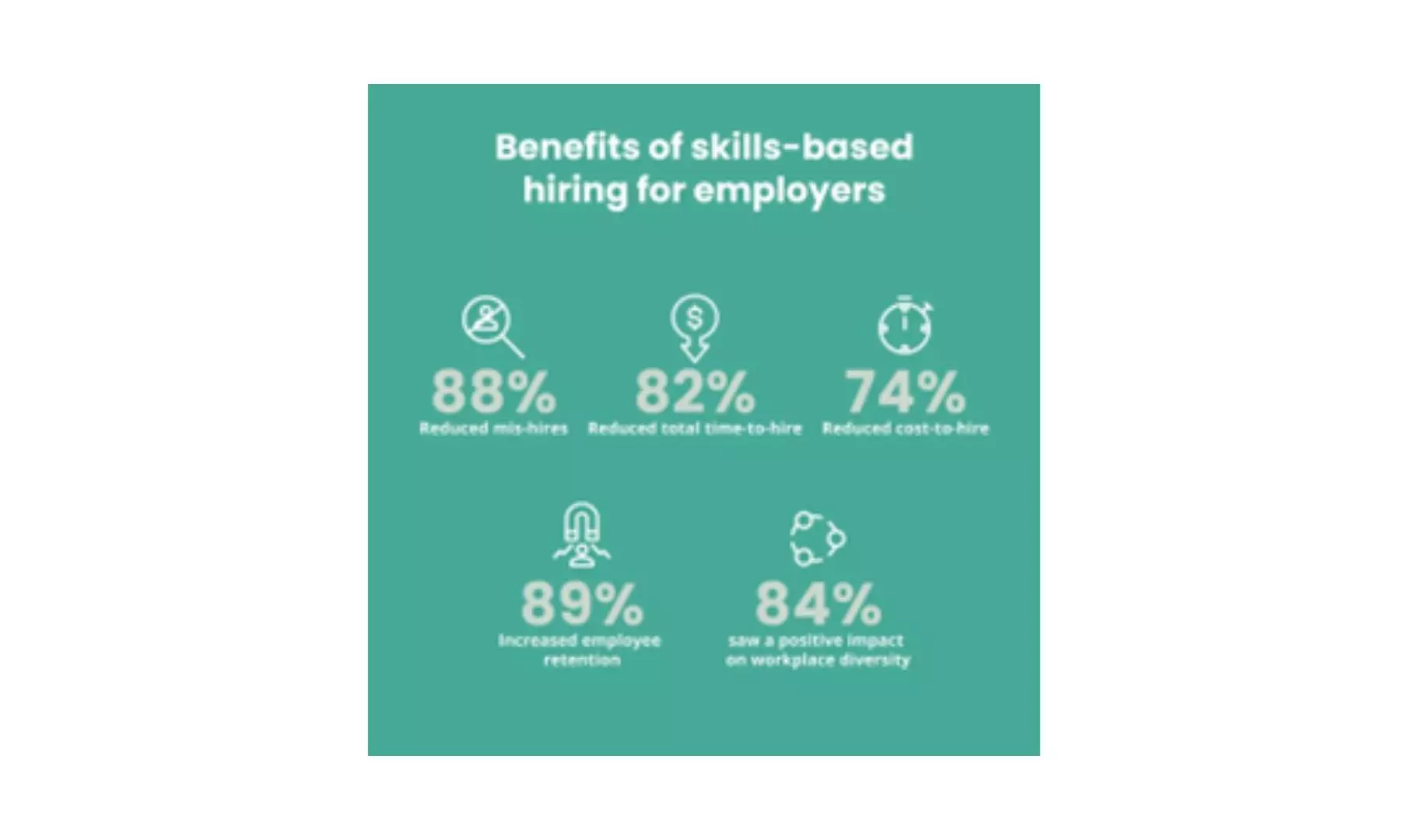Tear Down the Paper Ceiling

Diversity, Equity, and Inclusion (DEI) have become focal points of discussion for companies worldwide, across all industries and sizes. It's increasingly acknowledged that having a diversified and capable workforce directly enhances the development of innovative products with universal configuration.
ESG reports of various companies often detail statistics for workplace equity strategies, traditionally prioritising gender diversity and breaking the glass ceiling. However, until recently, little attention was paid to the "paper ceiling," where recruiters favor formal degrees from select institutions over skills. Academic pedigree overshadowed actual capabilities, hindering individuals without specific educational backgrounds. Shifting focus to skill-based assessments rather than pedigree-centric criteria is crucial for genuine inclusivity, ensuring all individuals have fair opportunities.
In 2020, COVID-19 revolutionised global work dynamics, compelling individuals to relocate to their families, often far from their workplaces. Corporations swiftly embraced dispersed teams to ensure efficient collaboration. This transformative period challenged conventional norms, encouraging innovative thinking, busting myths and promoting agility.
Soon after, a visible shift emerged in the global hiring landscape. In 2022, a McKinsey report highlighted how COVID-19, a potential recession and the great attrition has forced US companies to go beyond the paper ceiling and adopt a skills-based approach to expand their talent pool and retain great workers.
Several US employers are already hiring talent trained through non-traditional methods. An Opportunity@Work report says there are more than 70 million STARS (Skilled Through Alternative Routes) in the US. ZDNet report says that increasingly Gen Z’s are skipping college and choosing non formal means of education such as certification programs and bootcamps. Coding bootcamps and 4-year colleges boast similar alumni representation in top tech companies, signaling the imminent dissolution of the paper ceiling and the diminishing importance of formal degrees for career success. Embracing a skills-first approach promises to cultivate a highly proficient and diverse workforce, facilitating the development of products and services tailored to a broader customer demographic, thereby driving business expansion.
In India's tech industry, a notable shift is underway as companies are moving away from exclusively recruiting from top-tier tech and management schools. Prioritizing skill sets over traditional educational backgrounds is particularly evident at entry-level hiring. Some companies have initiated programs to tap into non-traditional talent pools, providing training to cultivate highly skilled professionals. Concurrently, leading edtech platforms have launched bootcamps to further this agenda, with initiatives like TalentSprint's Women Engineers (WE) and Women in Silicon Hardware (WISH) making waves in this space. WE has successfully developed a pool of 1000+ skilled women software engineers, many of whom are first-generation college goers from economically disadvantaged backgrounds and lesser-known colleges in remote areas of India. WISH, aimed at achieving similar outcomes for the semiconductor industry, is off to a great start in its first year.
Vocational training programs and industry partnerships are now becoming integral components, ensuring graduates are equipped with the practical skills sought by employers. The government's NEP 2020 has urged top institutions to introduce new-age programs, expanding access to education for a larger base of learners.
Skills-based hiring is definitely here to stay, with the US leading the way. Statistics show globally 73% companies adopted it in 2023. Number of companies that increased spend on skills-based hiring increased from 39% in 2022 to 60% in 2023. Employers expect the trend to become stronger as they see immediate benefits. Citing some TestGorilla report statistics
However, India is lagging much behind the US, because of some practical challenges.
- The paper ceiling is a social phenomenon. Parents and students are still keen to pursue the regular degree route in engineering, management and medical schools. Our society, especially the large middle class sector, looks down upon those who dropout of college and pursue alternative education methods. Not surprisingly we see an increasing number of coaching centers promising great NEET/JEE results, and thereby an assured seat in a top college. A change in social mindset is critical to build a large pool of skills-based talent that companies can hire from.
- Talent hiring processes need rethinking. Employers often find it difficult to implement skills-based practices across the entire hiring journey. They may have removed degree requirements, but are often unable to devise appropriate mechanisms to validate a non-traditional candidate’s proficiency in certain skills. Getting the right talent to apply and validating their skills are very different challenges. Recruiters need to start evaluating candidates based on their ability to perform specific tasks and solve real-world problems. This involves rethinking job descriptions, interview questions and assessment methods. Recruiters also need to incorporate strategies to evaluate soft skills, such as behavioral interviews, situational judgment tests and collaborative problem-solving exercises, to ensure successful, long-term hires.
- More diverse the team, the more effort needed to keep them motivated. Humans are comfortable with their own kind, and degree based hiring fulfills that. As skills-based hiring catches up and teams become increasingly diverse, company leadership needs to put in focused efforts to manage change–sensitize people to accept differences, be empathetic, and work together towards a common goal. This is a difficult and time consuming process.
Encouragingly, there's a growing awareness and movement towards making skills-first hiring the gold standard of recruitment, reflecting a broader commitment to inclusivity rather than mere strategy. Moreover, this approach helps a company achieve three key goals at one go–hire exceptional talent, create products for a large and diverse consumer base and achieve Diversity, Equity and Inclusion.
Debjani Mukherji is the Vice-President - Strategic Alliances and Rithwick Mosalikanti is the Senior Manager at TalentSprint.

